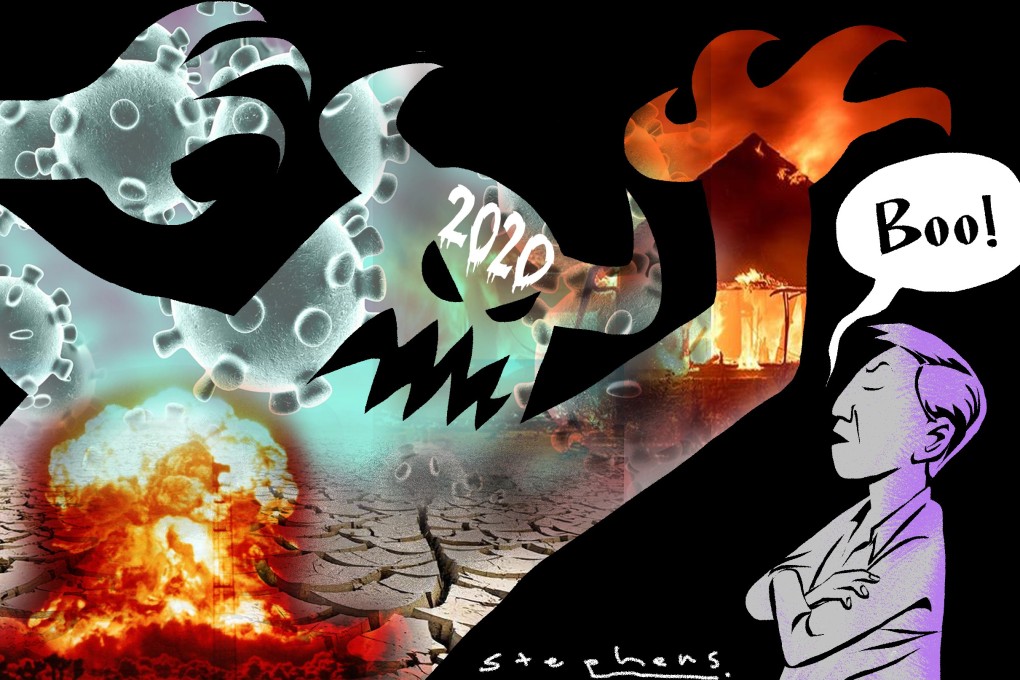Advertisement
Opinion | Beginning of the end? Reject the politics of fear and embrace hope and cooperation instead
- Buying into the doomsday narratives on Covid-19, climate change, civil wars or humanitarian crises only breeds fatalism and authoritarianism, when what the world needs is creative solutions and global cooperation
Reading Time:4 minutes
Why you can trust SCMP

The year 2020 appears to have started badly and grown progressively worse. There have been record bush fires in Australia, swarms of locusts in Africa and Asia, the threat of war between the United States and Iran and, most recently, the emergence of a coronavirus pandemic.
This is not to mention ongoing issues such as the Syrian and Libyan civil wars, the humanitarian crises in South Sudan and Yemen, the slide into authoritarianism in Turkey, Russia and China, and the weakening of democracy globally, to name but a few.
Yes, 2020 has not been particularly pleasant and the aforementioned problems are individually and collectively difficult to solve. But we should also not lose perspective. There is a human tendency to exaggerate the pertinence of the here and now. And, to an extent, that is what has occurred with the increasingly popular sentiment that 2020 is the beginning of the end of the world.
Advertisement
Take, for example, arguably the most pressing problem (of course, climate change is a greater long-term challenge) for the international community: the Covid-19 outbreak. This emerging pandemic is undeniably a massive challenge both locally and globally.
The contagiousness of the virus is seemingly greater than the quarantining capabilities of states – even ones such as China, which can effectively shut down whole cities – and it seems a certainty that it will end up spreading right across the globe.

Covid-19 is not a minor threat. People are dying and millions are affected (directly or indirectly) while the economic costs are going to be meteoric. Furthermore, the fatality rate for Covid-19 appears similar to the 2.5 per cent for the 1918 Spanish flu pandemic.
Advertisement
Select Voice
Choose your listening speed
Get through articles 2x faster
1.25x
250 WPM
Slow
Average
Fast
1.25x

